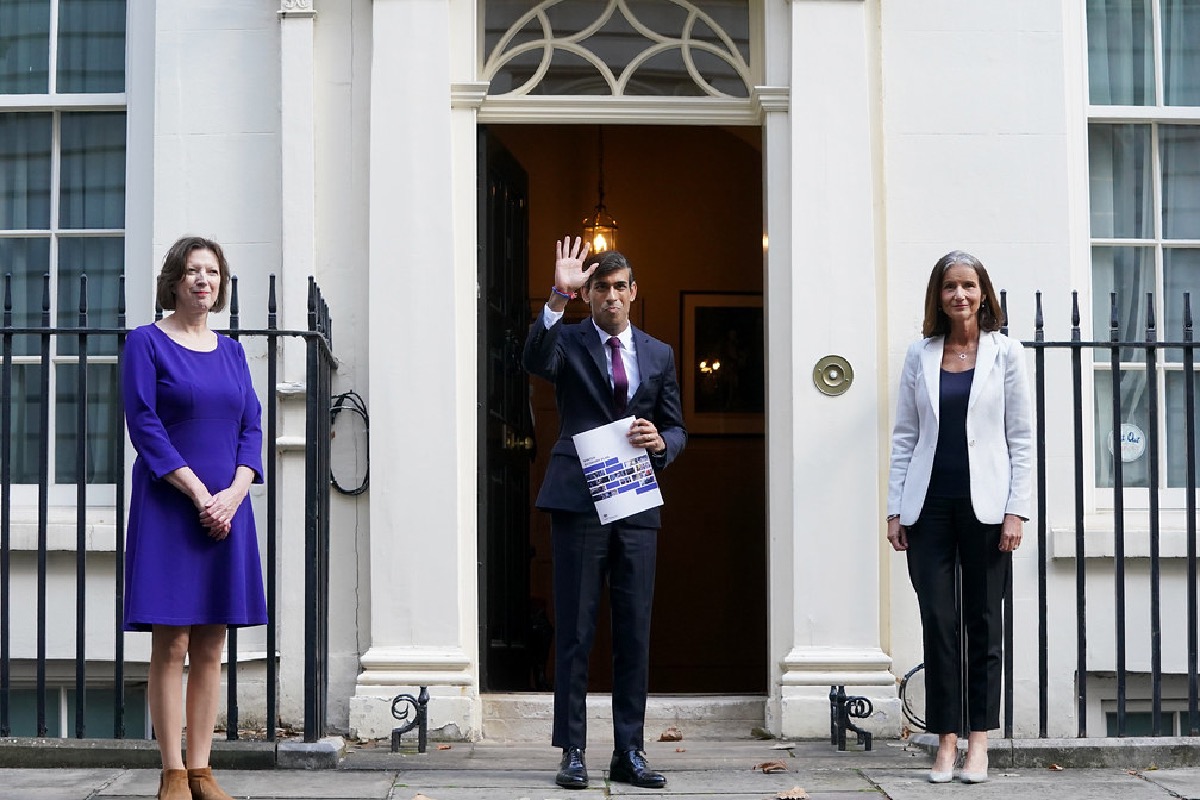So, on Diwali, former Chancellor of the Exchequer Rishi Sunak got the support of enough British MPs to become the next prime minister of the United Kingdom (UK). That happened on Diwali was a coincidence, but must have pleased Sunak no end. Remember, he had very publicly performed gau puja (cow worship) during his earlier bid for the job just a few weeks ago.
Sunak is a Hindu with south Asian ancestry. While congratulating him, Prime Minister Narendra Modi referred to British Indians as a ‘living bridge’ who could transform the historical relationship and spoke of implementing Roadmap 2030 together.
Sunak’s grandparents migrated to East Africa from British Punjab in the 1930s, and from Kenya to the UK after his maternal grandmother sold her jewellery in 1966 to fund the migration. The 42-year-old Sunak was born and brought up in Britain, and is decidedly British.
Yet, it is inescapably ironic that this brown gentleman has been selected to rule Britain 75 years after the British yoke was lifted from south Asia, and in the 130th year after a suit-clad London-educated attorney called Mohandas Gandhi was thrown off a first-class railway coach at the Pietermaritzburg railway station in South Africa — because he was brown.
That event had an impact on the future of the British Empire. One wonders how Sunak’s elevation will affect Britain’s view of itself.
Some might see a bit of irony in the fact that his party’s free-marketing agenda resembles that of the East India Company. The burden of taxes will continue to fall mainly on the relatively poor, working class, and what passes for the middle class.
The privileged… well, remain privileged. Sunak and his wife are said to be worth around 800 million pounds sterling. (Not long ago, he was said to have borrowed a working-class car for a photo-op.)
The idea of Britishness
As if these ironies are not enough, one cannot but remember that Sunak has risen to the top because of the Conservative Party’s flailing failures after it (specifically, former prime minister David Cameron) rashly called a referendum on whether Britain should leave the European Union (EU). By a very narrow margin, Britons voted to leave.
Why is that ironic? Well, one can barely miss the fact that one of the chief motivations for most of those who voted for Brexit was the ‘Britain for the British’ idea. Many Britons were aghast at the large numbers of Poles and other Continental Europeans who lived and worked in Britain thanks to the relatively open borders within the EU.
The last thing some of those who voted for Brexit would have wanted was a national leader who didn’t look the way they perhaps imagine Britons are meant to look. Indeed, a caller to a popular British television show last Sunday clearly said Sunak wasn’t British. His candidly racist remarks went viral.
Several analysts have indicated that colour consciousness may have been in the minds of many of the Conservative Party members who got to vote on whether Sunak or the previous prime minister Liz Truss, should get the job. They voted for Truss after party MPs had preferred Sunak.
No less ironic is the fact that Sunak, who asserts his Hindu identity, may now be the final arbiter in the selection of bishops and archbishops of the Church of England. The monarch normally appoints them on the advice of the UK cabinet —ultimately, the prime minister.
Talented man
At least for Indians who remember Churchillian contempt, there is another whole level of irony in the fact that the reason his colleagues in Parliament voted for him, twice in a few weeks, is that many count Sunak as talented and (hopefully) able to manage the extremely challenging economic and political straits in which Britain finds itself.
He was head boy of a boarding school, got a first at Oxford, and an MBA from Stanford as a Fulbright scholar. Son-in-law of Infosys founder NR Narayana Murthy, he began at Goldman Sachs at 21, rose to become a partner at a hedge fund partner, and later joined colleagues to form a new hedge fund.
Management skills are surely required. Britain’s National Health Service is creaking after two-and-a-half years of pandemic and other health challenges. Overall, the economy is in such bad shape that some analysts are talking worriedly about British bankruptcy.
There is an energy crisis across Europe, including in the UK. Winter will deepen that crisis, amid talk of many having to choose between eating and heating. Even a very talented leader would be hard put to lead a country through such challenging times.
Identity and nationhood
An even bigger danger lurks in the background: the possibility that Scotland and northern Ireland may seek to opt-out of the United Kingdom, preferring to return to EU membership as separate countries. Sunak will have to employ his charm to negotiate with the leaders of those regions who might bring up demands for referenda on secession.
After the recent death of the generally popular Queen Elizabeth II, there is also a possibility that some of the other countries who hitherto accepted the British monarch as their head of state might also seek to end that arrangement. Canada, Australia, New Zealand, and the several Caribbean and Pacific nations are on that list.
Whoever became prime minister at this stage would have faced these challenges. Sunak will almost certainly face the additional challenge of whether his colour could colour the attitudes of many in England — probably more than in Scotland and Ireland.
Did we mention irony? Well, it certainly seemed a little bit ironic when Sunak spoke emphatically of the need to build stability and unity during his remarks to the Conservative party MPs he now leads.
(David Devadas is a journalist and security, politics and geopolitics analyst.)
Disclaimer: Views expressed above are the author’s own.









